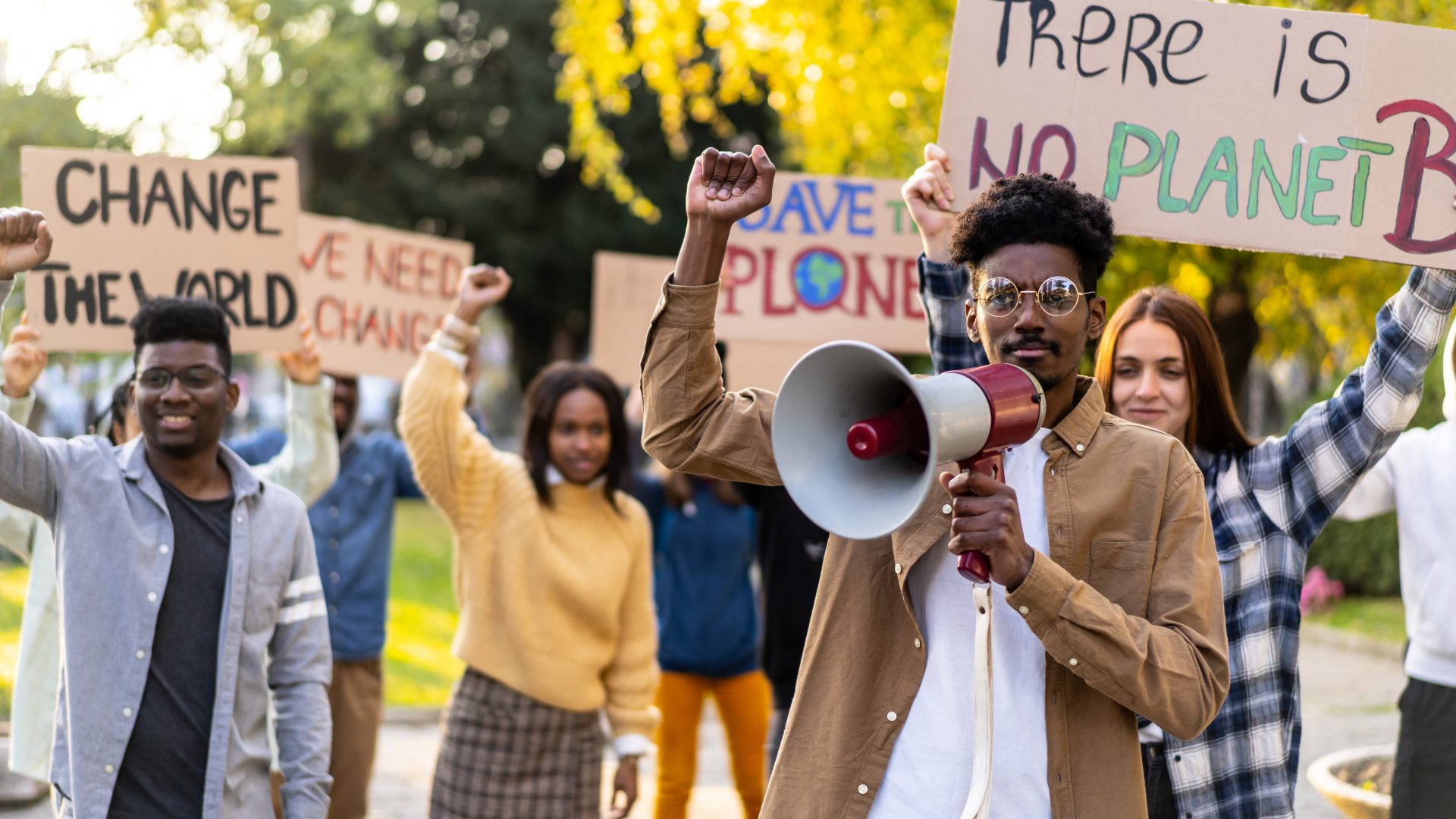
It’s easy for student changemakers to feel overwhelmed when leading campus activism and tackling change alone. A survey from 2023 found that 15 percent of Gen Z adults in the US participate in rallies or protests, compared to eight percent of Millennials and Gen Xers. Take Kessley Janvier, a student at Georgetown University, for example. She is an activist primarily engaged in reparations work as a member of Hoyas For Slavery Accountability (HASA). This student organization aims to support descendants of slaves by ensuring that Georgetown fulfills its commitments to invest in descendants-led projects. Janvier emphasized that as an activist, she refuses to accept injustice while also acknowledging the toll it can take on her mental health.
“In my reparations work at Georgetown, it boils down to the simple fact that Georgetown as an institution and all its prestige would not exist as it does if it were not for the forced labor of the enslaved Africans that built Georgetown. My reparations work is really a commitment to honoring those who came before me,” Janvier told GU. “It is a challenge, college is hard as is, and then there’s having a social life, joining extracurriculars, etc. I’m not sure I do an amazing job at balancing. I feel like I’m always missing something, whether that’s classes, activism, self-care or caring for my friends, but that’s life.”
According to McKinsey Health Institute, more than 50 percent of Gen Z expressed fear and anxiety about the future. Dr. Michelle Mitcham, an Associate Professor at Rutgers University and a Licensed Mental Health Counselor in Florida, shared insights with Girls United regarding the emerging trends in mental health observed within the empathetic and socially involved Zillennials.
“Generation Z has a lot of empathy, [and] they are advocates [who] think globally,” Mitcham tells GU. “They don’t even support a company without knowing what they believe in. It feels like a heavy load on their back because they want to help people and the world. With that, they experience compassion fatigue, anxiety and stress. It is overwhelming and stressful and they are just one person.”
Florida State University student Kaela Jackson is deeply committed to advocating for Juvenile Justice and education. While she acknowledges that solving the world’s problems is not solely her burden, she finds comfort in leaning on her family and friends during overwhelming moments.
“Activism often takes a toll mentally, emotionally, and spiritually, as one must fight for change in communities that directly affect them or that they’re deeply passionate about. When the weight becomes too heavy, I reflect on the progress society has made and cherish our victories, ” Jackson says. “I remind myself of the resilience of those who endured eras like slavery and segregation, expressing gratitude for their perseverance. Above all, I turn to my family, friends, and loved ones for comfort, reminding myself that I cannot single-handedly change the world.”
Both students acknowledge that activism can take a mental toll, but the work remains essential. Dr. Mitcham offered college students some tips on how to practice self-care while staying socially active.
Read ‘Riot Pens: Are HBCUs Putting Legacy Before Progress?’
SWOT Analysis
Dr. Mitcham advises students to establish a self-care plan and establish boundaries. In her interactions with patients, she has observed that self-care is often neglected amidst busy schedules. Additionally, she emphasizes the importance of setting boundaries concerning activism and social media, cautioning against allowing activism to encroach upon family and spiritual time. She suggests creating a SWOT analysis (strengths, weaknesses, opportunities, and threats) for personal self-care, employing the SCAMPER technique: Substitute, Combine, Adapt, Modify, Put to another use, Eliminate, and Reverse.
Mindfulness Techniques
She suggests that students consider downloading apps such as the Calm app. Alternatively, she advises exploring YouTube for guided imagery sessions for those unable to afford subscription prices. This practice allows individuals to create a tranquil environment, close their eyes, and safeguard their personal space. She highlights that this practice aids in mitigating compassion fatigue, preventing total burnout.
Seek Professional Support
According to Dr. Mitcham, students should consider visiting college centers for support. If they don’t feel comfortable there, they can explore numerous apps offering access to professional therapists. Verifying the education and professional experience of the individuals providing assistance is crucial.
Understand The Importance Of Saying No
She recommends the importance of learning to say “no.” You’re not obligated to agree to everything; not everyone needs to be informed of your activities at all times. Prioritize your peace of mind! Remember, you only have one you. In her years of working with college activists, she has observed that neglecting self-care often leads to an increase in anxiety attacks. Some individuals who experience panic attacks may mistake them for heart attacks. Another common issue she encounters is situational depression, characterized by temporary feelings of sadness that can be overcome with time and support.
Gen Z leads the charge for social change, advocating for justice with deep empathy and global awareness. To sustain our efforts, we must prioritize self-care. Activism requires rest, and taking care of ourselves is essential for creating the future we envision.
About the Author: Asia Alexander is a student at Howard University, working on all things pop culture, politics, entertainment and business.